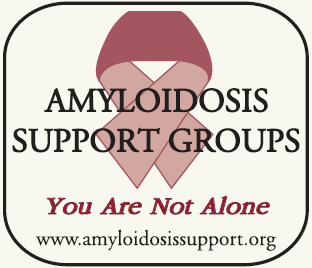Trusted Resources: Education
Scientific literature and patient education texts
Amyloidosis & Kidney Disease
source: National Institute of Diabetes and Digestive and Kidney Diseases (NIDDK)
year: 2014
summary/abstract:Amyloidosis is a rare disease that occurs when amyloid proteins are deposited in tissues and organs. Amyloid proteins are abnormal proteins that the body cannot break down and recycle, as it does with normal proteins. When amyloid proteins clump together, they form amyloid deposits. The buildup of these deposits damages a person’s organs and tissues.
Related Content
-
ISA 2020 | The Use of Solid Organ Transplant in AL Amyloidosishttps://www.youtube.com/watch?v=qkSRpmb-...
-
Stem Cell Transplant or Dara-CyBorD – ASG Webinar 12/13https://www.youtube.com/watch?v=4gUXPbOk...
-
Combination Therapy Holds Promise for Newly Diagnosed Systemic AL Amyloidosis PatientsUpdated research regarding the ANDROMEDA...
-
Future AL Amyloidosis Treatmenthttps://www.youtube.com/watch?v=K25lurau...
-
New, More Accessible Staging System Developed to Predict Survival for Patients With Light Chain AmyloidosisA new staging system developed with a mo...
-
The Patient’s Perspective on the Symptom and Everyday Life Impact of AL AmyloidosisIntroduction: This study aimed to under...
-
FDA Approves Subcutaneous Daratumumab Plus VCd for Newly Diagnosed Light-Chain AmyloidosisThe FDA has approved daratumumab and h...
To improve your experience on this site, we use cookies. This includes cookies essential for the basic functioning of our website, cookies for analytics purposes, and cookies enabling us to personalize site content. By clicking on 'Accept' or any content on this site, you agree that cookies can be placed. You may adjust your browser's cookie settings to suit your preferences.
More information
The cookie settings on this website are set to "allow cookies" to give you the best browsing experience possible. If you continue to use this website without changing your cookie settings or you click "Accept" below then you are consenting to this.
To improve your experience on this site, we use cookies. This includes cookies essential for the basic functioning of our website, cookies for analytics purposes, and cookies enabling us to personalize site content. By clicking on 'Accept' or any content on this site, you agree that cookies can be placed. You may adjust your browser's cookie settings to suit your preferences.
More information
The cookie settings on this website are set to "allow cookies" to give you the best browsing experience possible. If you continue to use this website without changing your cookie settings or you click "Accept" below then you are consenting to this.



 myBinder
myBinder




